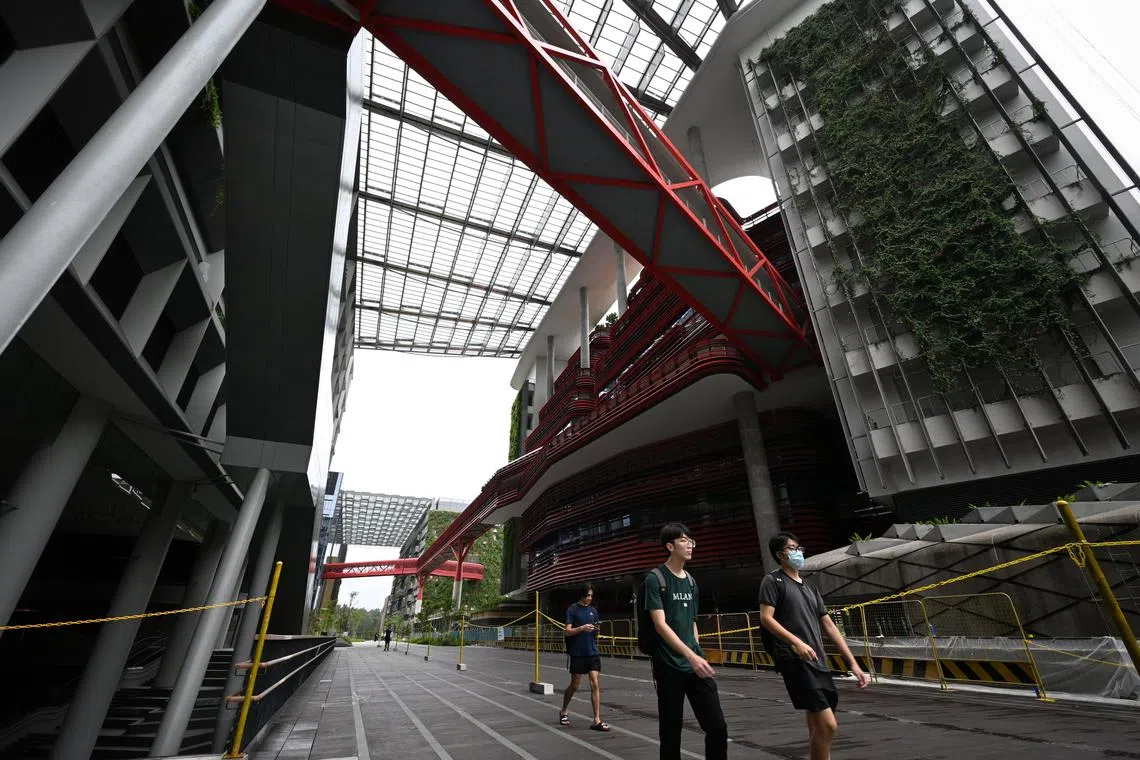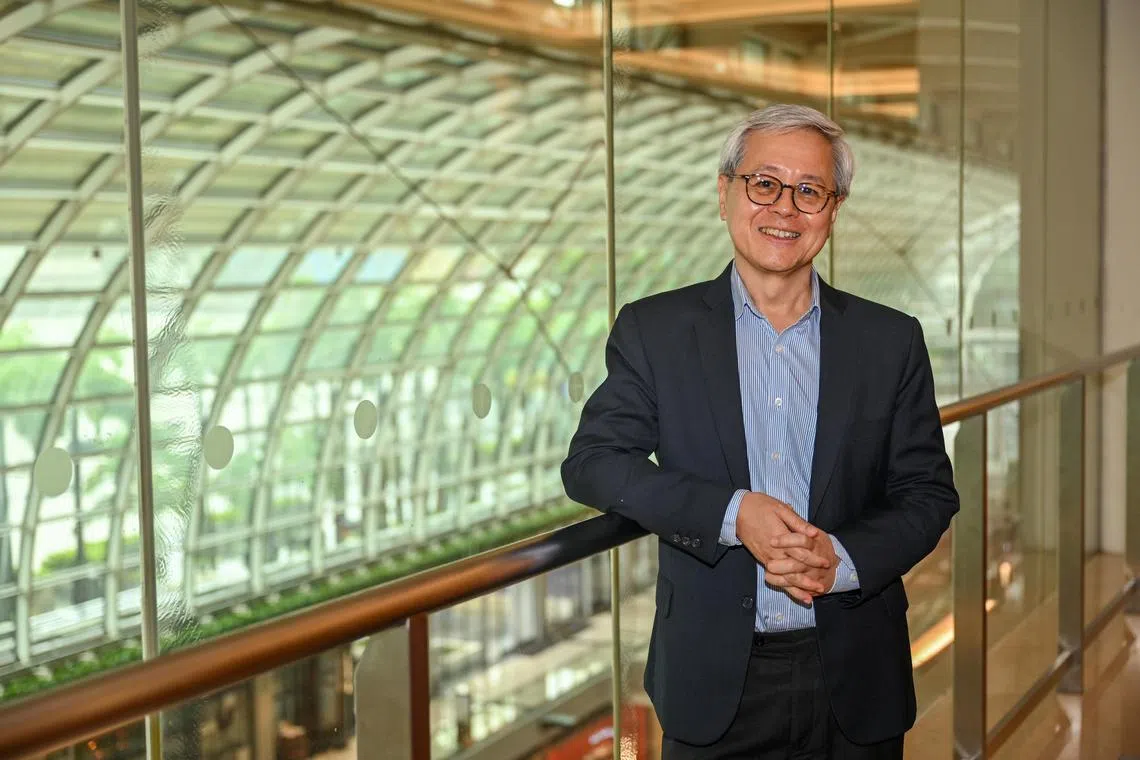New SIT engineering degrees pivot away from traditional way of learning to emphasise blocks of skills
Sign up now: Get ST's newsletters delivered to your inbox

Under two new engineering degree programmes, students will master key skills relevant to a professional role in real engineering practice, via “learning blocks”.
ST PHOTO: CHONG JUN LIANG
SINGAPORE – Full-time students entering the Singapore Institute of Technology (SIT) from the new academic year in September 2025 can pursue engineering in a novel way.
Under two new engineering degree programmes, students will master key skills relevant to a professional role in real engineering practice via “learning blocks”.
For example, in the four-year electrical and electronic engineering honours degree programme, a learning block could comprise skills related to semiconductor manufacturing.
Students would build skills in areas such as semiconductor packaging and reliability assessment, as well as semiconductor devices fabrication technology.
Each learning block, which takes four months to complete, includes a project based on industry problems for students to demonstrate what skills they have acquired.
This is different from the traditional structure of degree courses, where students typically learn the basics in their first year, and concepts become progressively more difficult each year before they take on a final-year project.
The second engineering honours degree programme to be taught this way is infrastructure and systems engineering.
Students will complete about six learning blocks during each of these four-year degree programmes.
SIT, which calls its new approach “competency-based education” (CBE), had previously used the format for adult learners in three degree programmes.
The university started with applied computing in 2023 and added electrical and electronic engineering, and infrastructure and systems engineering, in 2024.
In an interview with The Straits Times in December 2024, SIT president Chua Kee Chaing said the university aims to enrol a total of 100 students across both new engineering degree programmes.
The plan is for all SIT-conferred degree programmes to gradually adopt the CBE model, he said.
This method ensures that knowledge and skills are not just imparted, but that students can apply what they have learnt, he added.
One of the problems with traditional degree courses, he said, is that students may have forgotten what they learnt in the previous year.
They are also usually left to make the connection between a module in the first year and what they learn in the second or third year.
Said Professor Chua: “Instead of waiting three or four years before a learner has gathered enough knowledge to do something, I now put everything into a learning block, so that within four months, they are really equipped to do a specific task...
“That’s the fundamental difference between what we are doing and what other universities are doing.”

SIT president Chua Kee Chaing said the learning blocks in the two new engineering programmes ensure students not only gain knowledge but know how to apply what they have learnt.
PHOTO: BERITA HARIAN
Similar to how it is used for adult learners who study part-time, the CBE model for full-time undergraduates allows them to access online resources at their convenience.
This frees up professors’ time from giving lectures, so that they can conduct more tutorial and discussion sessions.
“Now they are free of these (lectures), they can spend more time interacting with the students, making sure that they understand which part the students are weak in, and spend more time to ensure that the students can develop that mastery of the competency,” said Prof Chua.
He added that professors will also have more time to consider how to assess students’ mastery of skills.
Assessments will comprise hands-on projects along with bite-size tests and quizzes, instead of traditional single pen-and-paper examinations.
New course in business and tech
SIT will also be starting a new four-year interdisciplinary degree programme which marries business knowledge with infocomm technology (ICT).
The first two fields offered in this programme are in hospitality and tourism management, and artificial intelligence (AI).
An SIT spokeswoman told ST that the idea is to develop hospitality students who are tech-savvy, so that they can apply AI to problems in the hospitality sector, or lead digitalisation in business transformation.
This comes after Workforce Singapore launched the jobs transformation map for the hotel industry
Prof Chua said that instead of offering students a major in business and a minor in ICT, where students read modules from different faculties, the new interdisciplinary programme seeks to go deeper.
He said that real work in the industry is never confined to a single discipline, especially as digital technology extends its reach across all sectors.
Prof Chua said the aim is not for students to be experts in both disciplines but rather to reach a point where “the individual is an expert in one but understands the other a bit deeper, to appreciate how the other side looks at the problem”.
Elisha Tushara is a correspondent at The Straits Times, specialising in Singapore’s education landscape.



